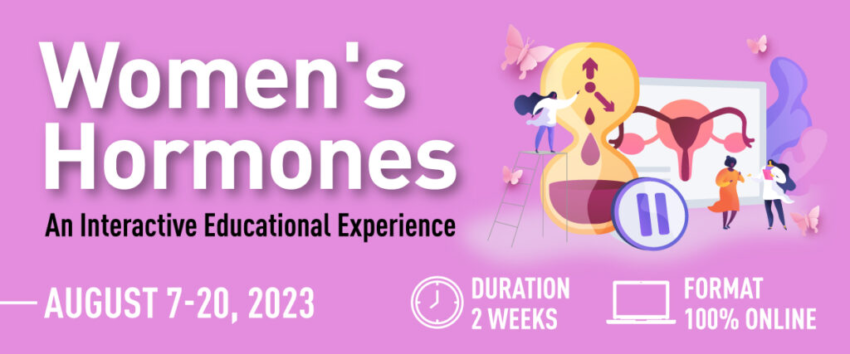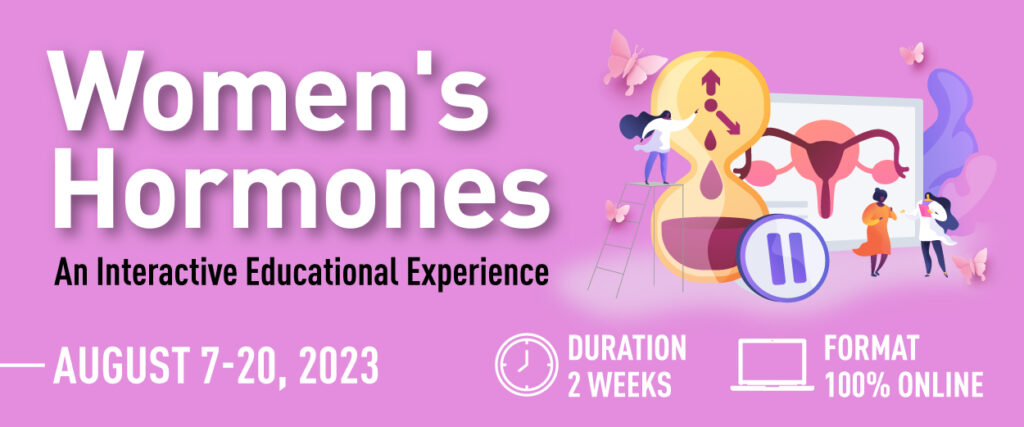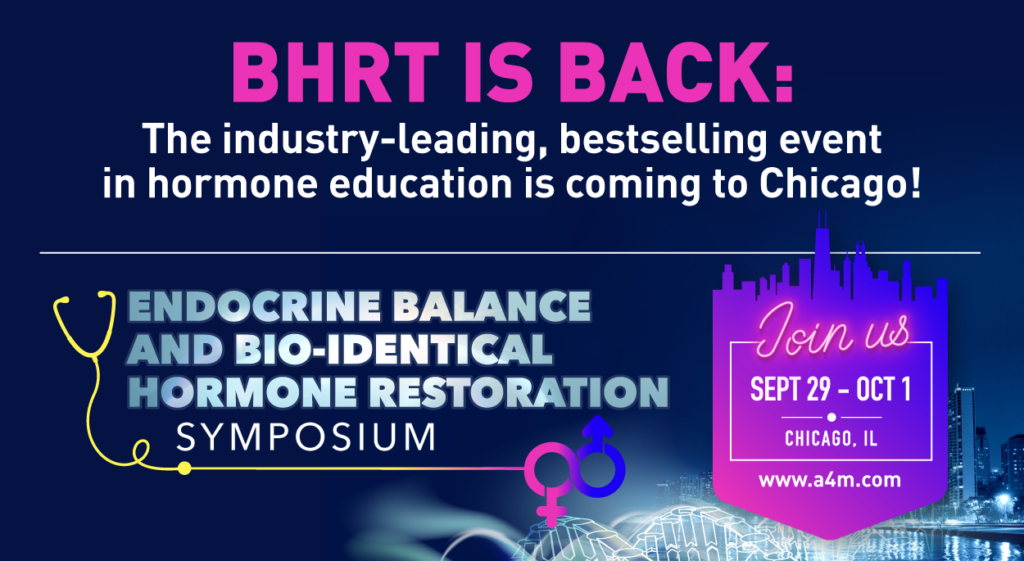The field of women’s hormone health is rapidly evolving as emerging research sheds light on the intricate complexities of hormonal fluctuations throughout the female lifespan. Striking and maintaining optimal endocrine balance throughout the reproductive years and menopausal transition remains a delicate objective at the forefront of functional anti-aging medicine.
However, ongoing scientific discoveries have spearheaded remarkable advances in evidence-based hormone therapies and bio-identical hormone replacement (BHRT) interventions designed to restore balance. Recent innovations in drug formulations, timing, delivery methods, and dosing protocols allow for increasingly personalized therapeutic strategies that not only effectively address cumbersome symptoms but also promote long-term well-being during perimenopause, menopause, and beyond.
The Latest Scientific Reports and Their Findings
Functional medicine practitioners play a vital role in translating emerging scientific insights into optimal hormone care counsel, treatment, and clinical best practices. To meet each patient’s unique needs, they must stay abreast of the latest evidence-based updates.
Emerging evidence reveals significant correlations between hormone therapy and female cardiovascular, cognitive, and neurological health. In particular, findings on the timing and formulation of hormone replacement therapies have progressed our understanding of leveraging hormone supplementation for both symptom relief and long-term health in aging women.
Published June 5, 2023, in Hypertension
It has been long established that a woman’s risk for heart disease increases with the onset of menopause, yet the connection between different hormone therapeutics (as well as delivery methods) and cardiovascular health continues to be studied.
A 2022 study conducted by Canadian researchers at the University of Calgary investigated whether the delivery method of hormone replacement therapy had an impact on cardiovascular outcomes, specifically the risk for hypertension.
The team investigated data obtained from 112,240 women between 2008 and 2019 who were using estrogen-only hormone therapy medication.
Women who took estrogen-only pills had a 14% higher risk of being diagnosed with hypertension than those who had used skin patches or cream treatments. Oral estrogen, in particular, resulted in a 19% heightened risk over vaginal creams and suppositories.
Key Takeaway: The type and delivery method of hormone replacement therapy can impact patient health outcomes. In female patients using estrogen-only hormone therapy, the lowest dose of non-oral estradiol should be prescribed for the shortest time period possible.
“A Pragmatic Approach to the Management of Menopause”
Published May 15, 2023, in the Canadian Medical Association Journal
Menopausal symptoms can begin as early as ten years before the last menstrual period and last for more than ten years after menopause onset; the symptoms are associated with substantial morbidity and a significant reduction in quality of life.
A comprehensive research review published earlier this year recommends hormone replacement therapy as a first-line treatment for menopausal women who do not have contraindicative risk factors.
“Despite early concerns of an increased risk of cardiovascular events with menopausal hormone therapy after the Women’s Health Initiative trial, increasing evidence shows a possible reduction in coronary artery disease with menopausal hormone therapy among younger menopausal patients, specifically those who start menopausal hormone therapy before age 60 years or within ten years of menopause,” the researchers concluded.
Key Takeaway: According to an in-depth review of current research, the benefits of hormone replacement therapy far outweigh the potential risks, and HRT remains the first-line treatment of vasomotor menopause symptoms in women who do not have risk factors.
Published on April 3, 2023 in JAMA Neurology
Hormone replacement therapy has been deemed the most effective intervention to combat menopause symptoms, yet the full extent of its impact on brain health requires further investigation.
Currently, postmenopausal females represent approximately 70% of all individuals with Alzheimer’s disease. Levels of tau — a protein involved in Alzheimer’s disease — are elevated in cognitively unimpaired postmenopausal females compared with age-matched males, particularly in the setting of high β-amyloid (Aβ).
In a recent study, researchers at Massachusetts General Brigham examined the extent to which sex, age at menopause, and hormone replacement therapy are associated with regional tau at a given level of Aβ.
To do so, the team analyzed PET scan data from 292 cognitively unimpaired adults measuring seven tau PET regions that show sex differences across temporal, parietal, and occipital lobes.
Females exhibited higher tau compared with age-matched males, particularly in the setting of elevated Aβ. Earlier age at menopause and late initiation of hormone therapy were associated with increased tau vulnerability. The highest tau levels were observed in hormone therapy users who reported a long delay between menopause onset and their initiation of hormone therapy. The early onset of menopause may be a risk factor for Alzheimer’s disease; however, women who begin hormone therapy around the age of onset do not show increased risk.
“This is the first study showing a delayed use of hormone therapy seems to be associated with increased levels of Alzheimer’s disease markers in the brain,” lead author Gillian Coughlan told ScienceDaily.
Key Takeaway: There is a critical window of time around the onset of menopause, during which the initiation of hormone replacement therapy yields optimal neuroprotective benefits—women who experience early-onset menopause and delay treatment experience the highest risk for Alzheimer’s disease. Proactive hormone testing, endocrine imbalance management, and patient education are critical components of an effective preventive care strategy.
As the intricacies of endocrine pathways and their systemic impacts continue to be elucidated, attaining and maintaining hormonal balance has emerged as foundational to overall health and longevity. While there is more research to be done, ongoing discoveries are steadily advancing the field of precision endocrinology – equipping practitioners to leverage bio-identical hormone-based interventions for optimal outcomes.
Today, there is a greater need than ever for specialists dedicated solely to optimizing endocrine health. By proactively addressing hormone deficiencies and imbalances with the latest evidence-based, personalized strategies, functional medicine clinicians have immense potential to transform patients’ lives. With ongoing cutting-edge training, practitioners can translate rapidly evolving insights into nuanced clinical approaches that reduce risks, ease challenging symptoms, and help patients thrive across their lifespans.
Discover the Latest Breakthroughs in Precision Endocrinology with Transformative Education
For an in-depth overview of the field’s latest advancements, we invite you to sign up for our upcoming endocrinology education events. Explore cutting-edge research, care protocols, and unparalleled insights delivered by globally renowned hormone health authorities. Don’t miss these premier clinical training opportunities to unlock your full potential at the forefront of breakthrough endocrinology.



